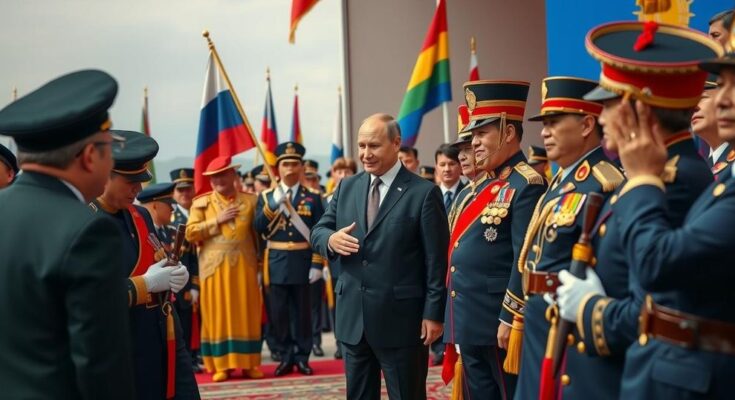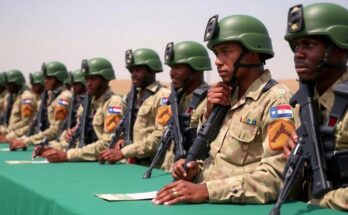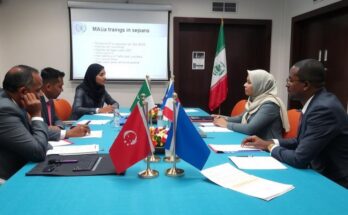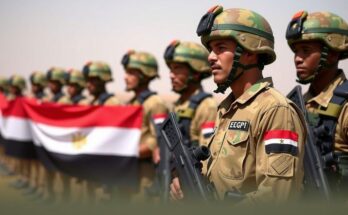Mongolia welcomed Russian President Vladimir Putin despite war crimes accusations, marking a visit viewed as a defiance of the ICC. This high-profile trip included meetings with Mongolian officials and celebrations of historical ties, amidst criticisms from the EU and Ukraine regarding Mongolia’s international obligations. Security measures limited protests against the visit, highlighting the delicate balance Mongolia maintains between powerful neighbors.
Mongolia warmly welcomed Russian President Vladimir Putin in Ulaanbaatar amid accusations of war crimes from various international actors. His visit, perceived as a bold act of defiance against the International Criminal Court (ICC), commenced on Monday and featured a meeting with Mongolian President Ukhnaagiin Khurelsukh in a significant square adorned with the flags of both nations. Putin praised Mongolia for its diplomatic stance and asserted that both nations share aligned positions on numerous global issues.
The ICC has issued an arrest warrant for President Putin concerning the alleged unlawful deportation of Ukrainian children amidst the ongoing war in Ukraine. Ukrainian Prosecutor General Andriy Kostin condemned Mongolia’s decision not to apprehend Putin, branding it a humiliation for the country. An official from the European Union expressed disappointment in Mongolia’s failure to adhere to its obligations under the Rome Statute, while the United States acknowledged Mongolia’s complex geopolitical situation and emphasized the importance of upholding international law.
Located between the powerful nations of Russia and China, Mongolia maintains close cultural and trading ties with both. The geopolitical landscape complicates its foreign policy, which has historically favored maintaining friendly relationships since the fall of the Soviet Union. Despite ongoing tensions arising from Russia’s actions in Ukraine, Mongolia refrained from condemning these actions, instead opting to abstain during critical United Nations votes regarding the conflict.
President Putin’s visit was marked by lavish celebrations, including military displays and musical tributes, underscoring the significant cultural ties between the two nations. Although a small group of protesters attempted to voice opposition to the visit, their efforts were hindered by heavy security measures. Authorities detained some activists for violating security protocols near the event, leading to a notable tension surrounding the event.
Putin’s trip commemorates a pivotal historical event, the 85th anniversary of the Mongolian and Soviet forces’ victory over Japanese imperialism. The combination of these factors highlights Mongolia’s delicate balance between honoring historical ties with Russia while navigating contemporary international law and human rights obligations.
Mongolia, a nation situated between Russia and China, has historically navigated its foreign relations carefully, especially since gaining independence after the Soviet era. This strategic positioning becomes increasingly intricate amid global tensions, particularly following Russia’s military actions in Ukraine. The International Criminal Court’s warrant against President Putin for alleged war crimes presents both a moral and political dilemma for Mongolia, which aims to preserve harmonious relationships with its powerful neighbors. Amidst these dynamics, Mongolia abstained from condemning Russia’s involvement in Ukraine and has refrained from actions that could compromise its diplomatic stance with either Russia or China. The significant ties to both nations shape Mongolia’s political landscape and approach to international relations.
In summary, Mongolia’s decision to host President Putin, despite international outcry and accusations of war crimes, demonstrates a complex interplay of historical ties and contemporary geopolitical realities. The visit raises questions regarding Mongolia’s commitment to international legal standards, as criticisms from Western entities highlight concerns over its international standing. Nonetheless, Mongolia’s response to its larger neighbors reflects its long-standing diplomatic philosophy of balance and pragmatism, ultimately prioritizing regional stability over global pressures.
Original Source: www.channelnewsasia.com




